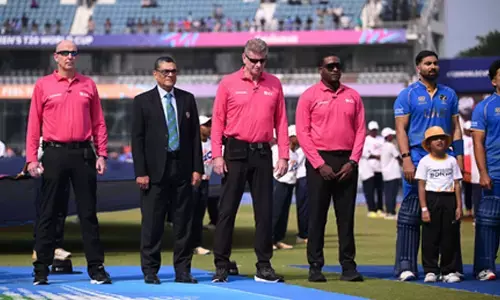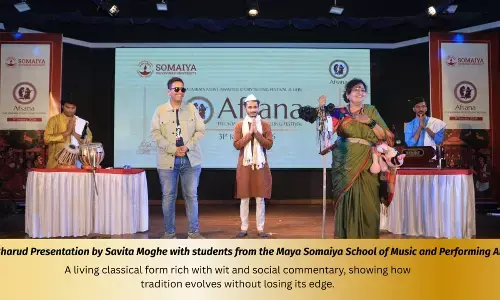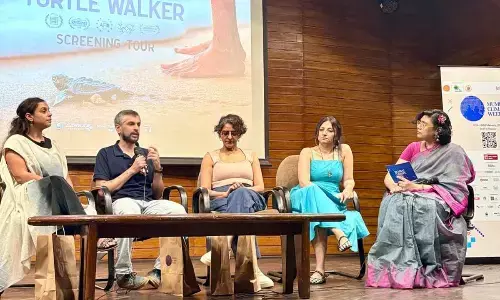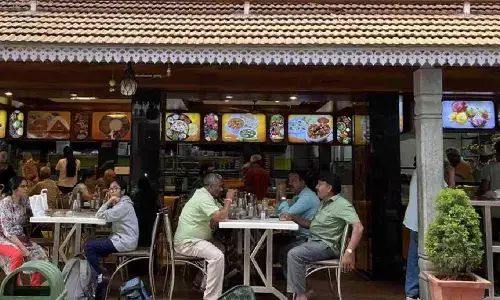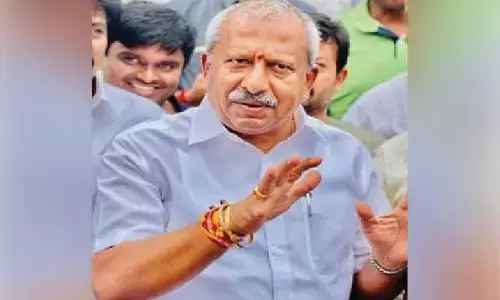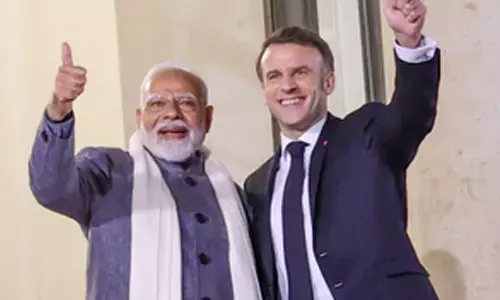Atmanirbhar Bharat package sans federal spirit
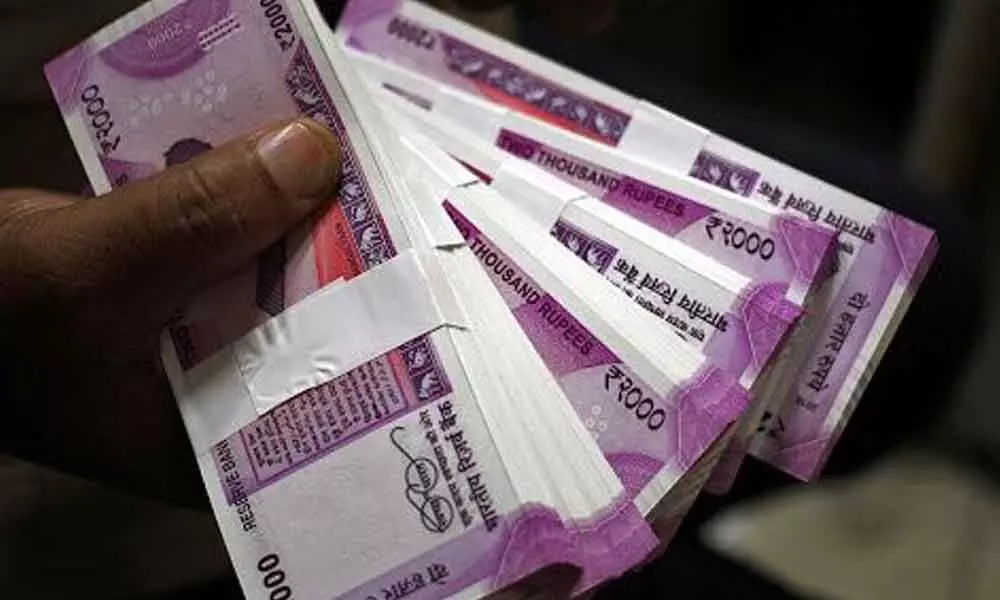 Atmanirbhar Bharat package sans federal spirit
Atmanirbhar Bharat package sans federal spiritThe present context of coronavirus scenario aptly recaps the first stanza of the poem ‘The Pillar of the Cloud’ written by an English theologian and poet, John Henry Newman, two centuries ago
The present context of coronavirus scenario aptly recaps the first stanza of the poem 'The Pillar of the Cloud' written by an English theologian and poet, John Henry Newman, two centuries ago. He wrote: "Lead, kindly light, amid the encircling gloom, I do not ask to see the distant scene, one step enough for me."
Prime Minster Narendra Modi's appeal in his first address to the nation after corona outbreak, giving a call for peoples' curfew and the subsequent call for clapping hands, beating plates, ringing bells etc. was scrupulously and sincerely followed by one and all.
Later, his call for complete lockdown of the entire nation for the 21 days beginning on March 24 was also total success despite no exit plan and no strategy to live with coronavirus.
Later on, time and again lockdowns were extended including the latest till May 31. However, from the other side, one after one, trains are being run, liquor shops are opened, unscientific zonal system is observed and many more deviations.
The strategy of States on lockdown depends on what stand the Centre takes and on the basis of guidelines given by the Centre and they are left with no alternative except to fall in line.
Recently, Modi held yet another video conference with Chief Minsters on May 11. There was no official communique from the government of India as to what had transpired, what were the consensus points and where they differed.
It would have been better had the Union government took people into confidence. However, Chief Ministers like K Chandrashekar Rao of Telangana and Mamata Banerjee of West Bengal came out with their statements after the conference.
Chandrashekar Rao urged the Prime Minister not to revive the passenger train services which were stopped as part of preventive measures to contain spread of coronavirus in the country.
He said that coronavirus impact is predominant in metro cities like Delhi, Mumbai, Chennai and Hyderabad and if there is movement from these places it would be very difficult to contain the spread.
The Chief Minister pointing out that, coronavirus had a negative impact on the economy leaving behind with no revenues, vehemently suggested that loans taken by States should be rescheduled and FRBM limits be enhanced.
Chandrashekar Rao's statement said that the corona is not going to leave us now and we have to live with it and hence lead people in this direction.
First of all, we should remove fear about corona among the people. Another suggestion was that the lockdown regulations should be strictly implemented in the containment zones.
Prime Minister Narendra Modi addressed the nation once again on May 12. Labelling the corona crisis as unprecedented, he envisaged a self-reliant India which will stand on five pillars viz Economy, Infrastructure, System, Vibrant Demography and Demand.
Then he announced a special economic package to achieve an 'Atmanirbhar Bharat' or 'self-reliant India', to the tune of Rs 20 lakh crore, which is equivalent to almost 10% of India's GDP.
Prime Minister said that the package will focus on empowering the poor, labourers, migrants, etc. both from organised and unorganised sectors.
Meanwhile, Union Finance Minister Nirmala Sitharaman's five-day serial lectures commenced the following day after Modi spoke to the nation.
On the first day, the Finance Minister announced measures apparently to help businesses, including micro, small and medium enterprises (MSMEs), recover from the economic impact of the coronavirus pandemic as part of the package announced by PM.
The next day she announced a Rs 3.16 lakh crore package of free food grains for migrant workers, concessional credit to farmers and working capital loan for street vendors as part of the second tranche of fiscal stimulus to heal an economy hit hard by coronavirus lockdown.
Third day, measures to strengthen agriculture infrastructure logistics, capacity building, governance and administrative reforms for agriculture, fisheries and food processing sectors were announced.
Day four was devoted to structural reforms in coal, minerals, defence, civil aviation, power distribution, social infrastructure, space and atomic energy.
The fifth and last day announcements focussed on seven steps namely MGNREGS, health, education, business and Covid-19, decriminalisation of Companies Act, ease of doing business, public sector enterprises and support to State governments.
The Finance Minister with some riders raised hopes of States by increasing borrowing limits. She announced that, in view of the unprecedented situation, the Centre had decided to accede to the request of States and increase the borrowing limits of States from 3% to 5% for 2020-21 only enabling States getting extra resources of Rs 4.28 lakh crore.
However, the rider is that, part of the borrowing by States will be linked to specific reforms. From 3-3.5%, the 0.5% will be an unconditional increase.
Next 1% to be released in 4 tranches of 0.25%, with each tranche linked to clearly specified, measurable and feasible reform actions. Further 0.5% will be given if milestones are achieved in at least three out of the four reform areas.
The revenue surplus States like Gujarat and Telangana were already having an extended unconditional FRBM of up to 3.5% of GSDP. The current increase of up to 3.5% for Telangana is no additional benefit.
Further the conditional increase of FRBM from 3.5 to 4.5 % loan limit offered to States is against the federal spirit. This is more an eyewash as only o.5% is unconditional and the rest is conditional on a State achieving certain measures. These are impossible to achieve in a critical year like this. Moreover, this diluted facility is only for this year.
The package announcements are nothing new and part of her budget speeches. The economic activities and the lives of common people have virtually come to a standstill across India, but there was nothing in the stimulus package.
An entrepreneur, expressing great dismay and deep anguish, described the package as a joke on Indian economy and all the Indians.
According to him, self-reliance does not mean, an entrepreneur surviving on loans, increasing liabilities, saving less and eating out of safety net so that government can claim it as its support.
The government of India tried to make up the total to over Rs 20 lakhs crore. Much of this money will flow through the banks through loans to MSMEs, agriculture, industries etc.
There is likely to be some doubling in counting. The package to States is very disappointing. The support in a critical sector like health is very minimal.
There is nothing in real terms, that can be said, as States' share in utilizing the package funds. There is no provision for direct financial support to the States.
The amount allocated to States is just a little over Rs 4,000 crore! The spirit of cooperative federalism is totally annulled. The crucial role which the Union government is expected to play in Indian federal system in such a deep crisis and usher in a new era of need-based fiscal federalism is conspicuously absent.
Confidence building is an art, is a science and is a quality of leadership and motivation. People by and large expect persons like Chandrashekar Rao speak often through his press meets because they are enthused, they are inspired, and they are moved.
Whereas, the same people, generally get bored with PR expert Prime Minister Modi's speeches and Finance Minister Nirmala Sitharaman's classroom lectures. People expect guidance and comfort in times of trouble and that is what is 'Lead Kindly Light' in the words of John Henry Newman.
(The writer is Chief PRO to the Chief Minister of Telangana. Views expressed are personal)


